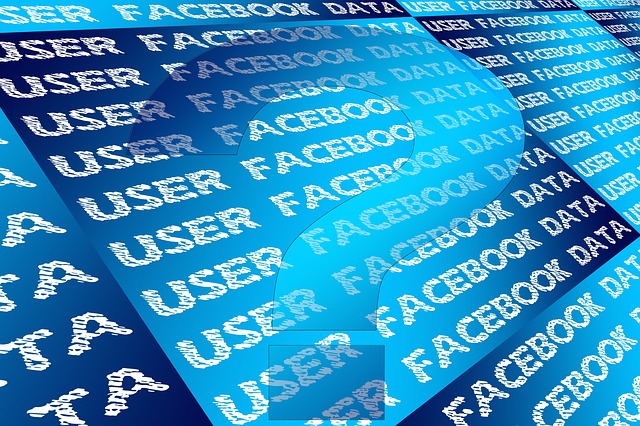Welcome to 2019. Our “Best of JacoBLOG” continues through this short week. Today’s post is one of my favorites from the year past, and it apparently many resonated with many of you, too. It’s all about the social platform people still use the most – Facebook. And a topic we love to talk about in radio – data.
2018 was the worst year ever for Facebook. The mega-social media network was rocked by any number of revelations, scandals, and developments. This “Best of” post was published last May, before we learned the full extent (assuming we know all of it now) of Facebook’s complicity in
the 2016 election and related misuses of data.
Before all that hell broke lose, however, many were surprised at the extent to which Facebook uses our data to support its vast advertising network. And that was the centerpoint of this post. As radio companies grapple with their own listener data and how to best use it, marketers are hard at work developing algorithms, AI, and other technologies designed to learn who and where we are and what we buy.
As we kick off a brave new year, I hope this post will provide some food for thought as we redefine how radio can provide improved and enhanced marketing tools this year – and beyond. After all these decades, a conversation about radio’s advertising model is as relevant as ever.
Meanwhile, for Facebook, the headwinds in 2019 may get even stronger. – FJ

Many people are in up in arms about Facebook for any number of reasons. We’ve talked about the “programming vs. sales” struggle that’s been occurring inside the upper echelons of the company. In a recent blog, Facebook’s “sales department” has made user data available to any and all advertisers, including questionable organizations like Cambridge Analytica (which announced it was going out of business on Monday).
But it’s this notion that Facebook has been selling and marketing our data that has elevated the term, “WE are the product” into the spotlight. Many are incredulous that Facebook has been slicing and dicing our data, making it easy to sell our personal information to a growing number of advertisers – including nefarious data collection companies like Cambridge Analytica.
In a recent article in Slate – “Are You Really Facebook’s Product?” – writer Will Oremus talks about the history of big companies using data to market audience to advertisers. He quotes op/ed writer Edward Morrissey:
“You’re not Facebook’s customer. You’re Facebook’s product.”
And in fact, Oremus explains a key distinction is whether you pay for the platform in question. In the case of Facebook, of course, we don’t spend a dime.
He quotes a comment discussing the news site, Digg, and applying it to Facebook:
“If you are not paying for it, you’re not the customer; you’re the product.”
But Oremus traces the origin of this quote back to the ’70s when it was first used to describe network television. In those days, a handful of networks – CBS, NBC, and ABC – were being regularly accused of airing banal content in an effort to grab ratings and its spoils: ad dollars.
So, in essence, isn’t Facebook’s model similar to broadcast media’s – including of course, radio?
Broadcast TV and radio, and yes, Facebook, are free media platforms that provide programming and content at no cost. And thanks to technology, Facebook has far more sophisticated tools to learn about our habits, our beliefs, our pros, and our cons – especially compared to what broadcasters can provide.
But broadcast media companies have been aggregating our data, too. Ratings companies from Hooper to Arbitron to Nielsen have been providing demographic information about consumers to savvy advertisers. They know who’s watching TV and listening to the radio using sophisticated breakouts and analytics, including product usage data from companies like Scarborough. And as we know, ratings companies have routinely sold this data to agencies at much lower costs than broadcasters pay for the same data.
 Oremus believes you can make the case that in radio’s business model, listening audiences are in fact the product, used by advertisers for decades as marketing tools to sell their products and services.
Oremus believes you can make the case that in radio’s business model, listening audiences are in fact the product, used by advertisers for decades as marketing tools to sell their products and services.
His arguments are fascinating, and worth your time and consideration because they speak to our personal relationships with media and technology. The question of whether people are being taken advantage of by Facebook (or radio and TV) is a compelling one.
Oremus points out that while Facebook – and broadcast media – are free, consumers pay for these services in other ways. In Facebook’s case, it may be your privacy and your behavioral data. And of course, your time. For commercial radio and TV, it’s all those commercials.
He does make a distinction that historic complaints about Facebook and broadcast media are quite different. Over the years, TV (in particular) and radio have been been tagged with censorship (and much of that has to do with the presence of the FCC), and bland programming designed to generate ratings. Facebook, on the other hand, has been plagued by a lack of control on its content, publishing pretty much anything. But despite that difference, both business models are quite similar. They all market their audiences to advertisers.
These are the trade-offs consumers make in their enjoyment and usage of media – whether it’s broadcast or social. Sometimes, you put up with too many commercials (and/or bad ads), or you give up your data.
All that said, if you’ve ever put together a demographic ranker using Arbitron, Nielsen, or Eastlan data, a Scarborough profile, or other tools designed to present your audience to advertisers, you’re just operating a more rudimentary version of what Facebook and Google have been doing successfully for the past several years.
These days, it is easy to rag on Facebook. Clearly, many aspects of their privacy policies and marketing tools require more thought and transparency. But to suggest that Facebook is somehow a bad actor because it uses audience data to market its audience – us – to advertisers is to be naive about what mass commercial media has always been about.
 And the fact is, every radio owner would be more than happy to trade away some of its audience privacy in exchange for more robust audience information, metrics, and details. In many ways, all the attribution and granular metrics radio so very much wants to provide advertisers is the stuff that has made platforms like Google and Facebook so valuable. If anything, radio is guilty of data envy.
And the fact is, every radio owner would be more than happy to trade away some of its audience privacy in exchange for more robust audience information, metrics, and details. In many ways, all the attribution and granular metrics radio so very much wants to provide advertisers is the stuff that has made platforms like Google and Facebook so valuable. If anything, radio is guilty of data envy.
Yes, radio is about music, information, talk, and personality.
But the actual product?
Look in the mirror.
- How Will Radio Fare In The Battle For The Fourth Screen? - April 3, 2025
- Like A Pair Of Old Jeans - April 2, 2025
- What’s Fair Is Fair - April 1, 2025





Leave a Reply